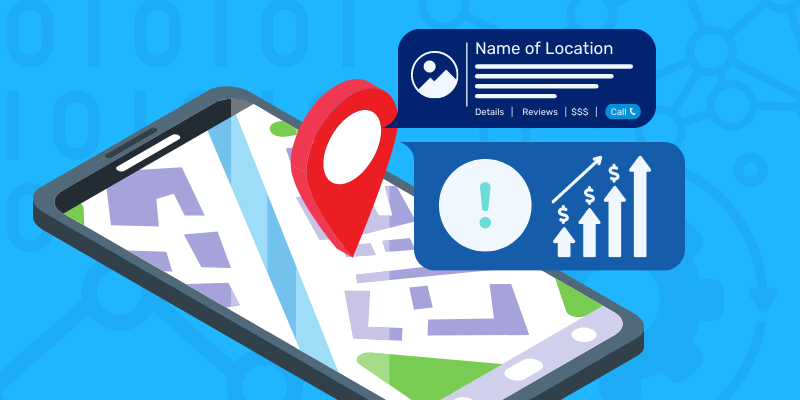Due to the power of connectedness, which puts everything in the world at our fingertips, everyone is now intertwined with one another. Through your mobile phone, you may do everything from anywhere in the globe, including search, learn, inform, buy, transmit, and more.
But how exactly does this connectivity work?
The hero, often known as the API or Application Programming Interface, is at the heart of everything. Additionally, the locations API push connectedness even further.
Let’s get right to it if you’re wondering what a location API is and how it functions.
Location API: What is it?
Let’s say you wish to search your city for a particular service or vendor. or are interested in the day’s temperature. The Location-based Application Programming Interface then links you to this data according to your location.
Developers can utilize location APIs to build applications that rely on a user’s location to give pertinent results. Location APIs can be used to calculate the distances between app users.
In other words, the location API serves as a reliable channel of communication between a client device and a server. It uses the client’s location data to deliver pertinent results.
Let’s explore location API’s functionality now that you are familiar with what it is.
How Does Location API Work?
As the term ‘location’ suggests, the main requirement is location information.
Generally, Location-based APIs use a device’s geolocation capabilities, which cooperate with GPS and mobile phone towers. This helps to determine the radius of where the mobile user is located. This is then used to correspond with available services in and around that radius to provide relevant solutions to the user.
With the help of geolocation APIs, location information matching IP addresses is distributed. The IP address collected is transmitted to a geolocation API as soon as the user joins the application.
The API can be used to determine the user’s current location and to keep track of any location changes.
Usually, the information provided by this GPS API include:
- Physical location (country, city, zip code, etc.)
- Latitude and Longitude
- Local information (language, currency, time zone, etc.)
What are the Advantages of Location API?
It goes without saying that data based on locations is beneficial to all. Today, because of such position-specific APIs, your mobiles are all you need. No one has to depend on physical maps, phonebooks, directories, or other cumbersome sources anymore to search for a service.
Besides customers, it is also highly beneficial for service providers. Location-based data helps you to reach your potential clients at the right time and place. Moreover, geolocation is a growing marketing tactic targeting prospects and expanding businesses online.
Here are some more benefits of geolocation web APIs.
- Better User Experience
Firstly, it enhances the user experience of your website in many ways. When consumers look for local companies or attractions, it helps to return more accurate results. Furthermore, it assists in minimizing the time and effort needed to input addresses or other location-based data.
- Fewer Chances of Misinformation
Naturally, with an awareness of your location, you can find relevant results rather than getting a vague range of answers. Locations API detects your location automatically to help the site deliver accurate information. Hence, it not only prevents inaccuracy but also proves helpful even by automatically detecting a location change.
- Improved Business and Marketing Opportunities
Businesses and marketing agencies have new options to interact with their customers, thanks to the location services API. Businesses can more effectively target advertising by sharing precise location data. You enhance customer service by offering real-time details on local goods and services. Additionally, you can monitor the effectiveness of mobile market campaigns.
- Improved Privacy and Security
Since the internet can automatically identify or track addresses, privacy seems to be a problem. However, it is safer than you might think because you have the option to restrict location access as needed. In general, you can decide to have your requirements met without any privacy or personal security being compromised.
- Identifying Fraud
Surprisingly, by effectively tracking, location-specific APIs also assist in the detection and identification of fraudulent activity. It helps identify whether a device is moving too strangely or is being utilized in an odd location. By monitoring the location of devices, businesses may more easily identify potentially fraudulent activity and take preventative measures.
Endnotes
Location API aids in maintaining connections in a world that continues to grow and improve.
By accessing the client’s location, location APIs are a crucial communication interface that links clients to services. This data is utilized to provide directions and locate nearby accurate solutions.
Customers gain from this as well as providers’ ability to approach prospects at the right time and place. Today, geolocation is a successful marketing tactic as it improves user experience and delivers precise, quick results without compromising privacy.
Location-specific information can be very helpful in producing prompt and efficient solutions. So, are you ready to use this for your benefit?



